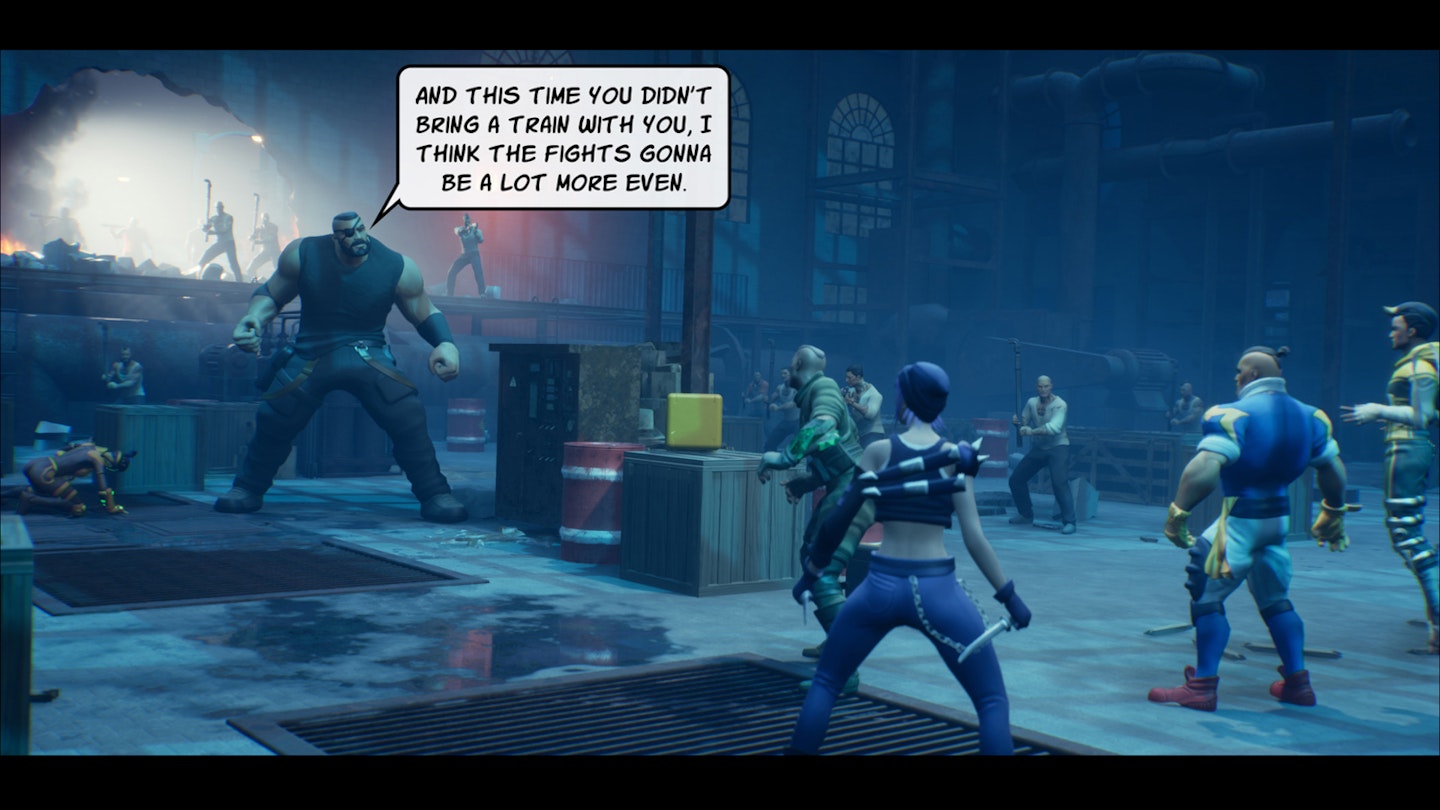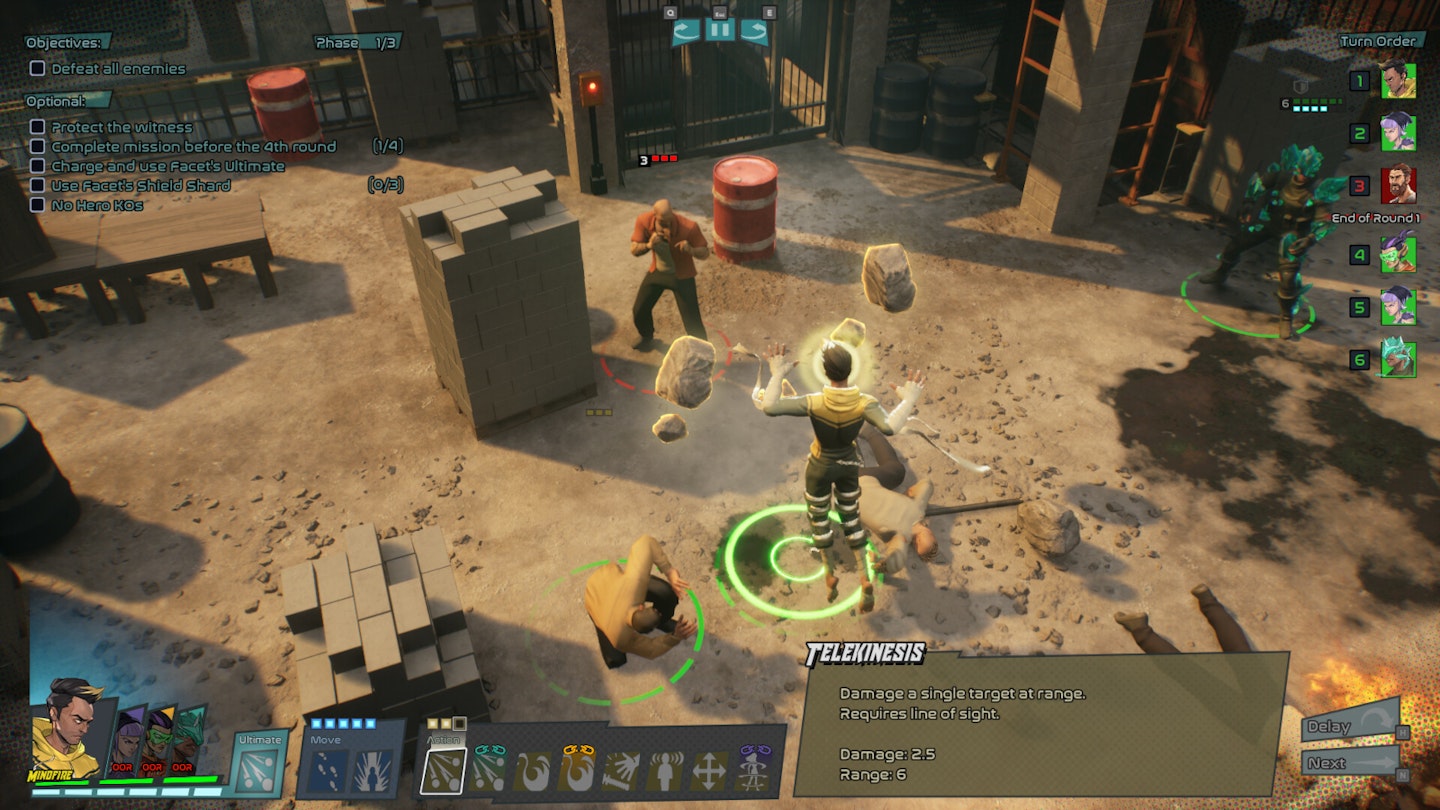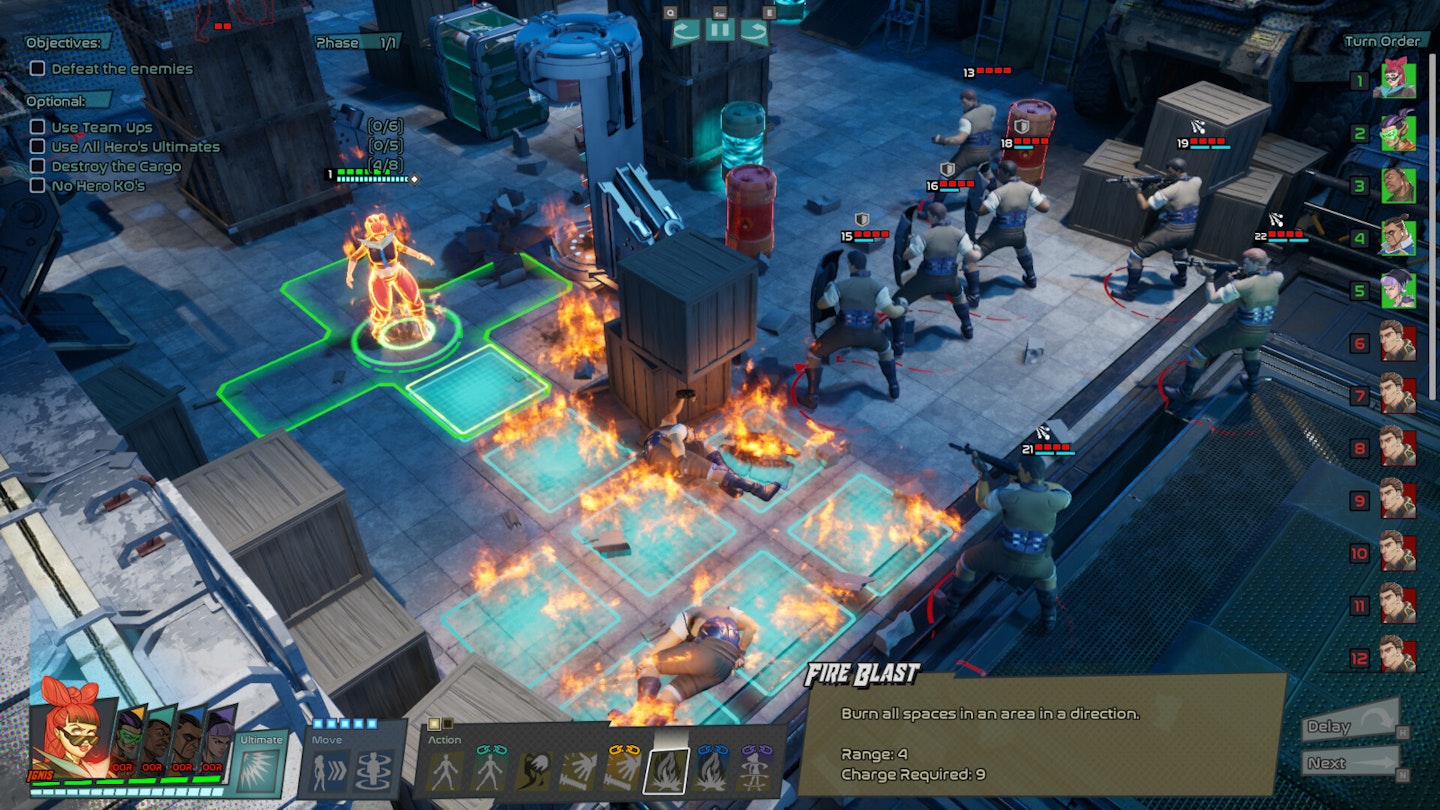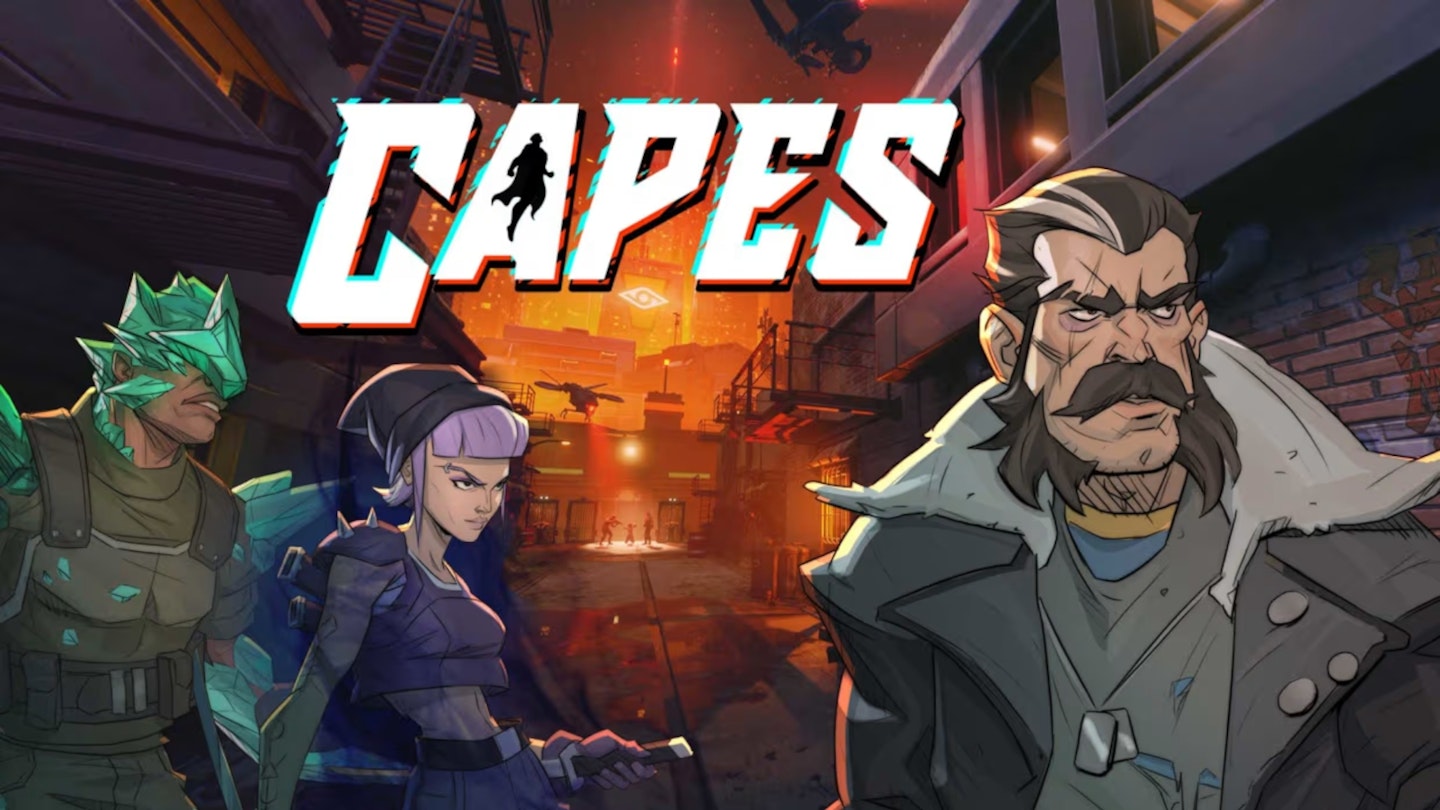Platforms: Xbox Series X|S, Xbox One, PS5, PS4, Nintendo Switch, PC
Original superhero universes are tricky in a field dominated by Marvel and DC. The two companies even co-own the trademark on the very term "superhero", and between the ever-expanding Marvel Cinematic Universe and James Gunn's upcoming revamp of the DC Universe, they've never let audiences forget it.
Yet Capes stands out not by emulating the big screen outings of those genre titans but by showing a clear and genuine affection for the comic book universes that laid the groundwork in the first place. Comics are baked into the visual language of this XCOM-style turn-based strategy title, from character design to the use of speech bubbles accompanying dialogue, and jump cuts in narrative scenes that emulate panel transitions on the printed page. It's not the first game to take such an approach – Freedom Force and City of Heroes are notable earlier examples, but where those leaned heavily on Golden Age and Silver Age archetypes, this is rooted in the likes of Watchmen and The Dark Knight Returns as much as the works of Jack Kirby.

Set in King City, players guide a small group of insurgent superheroes (none of whom, ironically, wear a cape) to take back the city from a sinister corporation that has seized control and outlawed anyone with powers. Gathered by the mysterious Doctrine – think Professor X meets Batman, the last vanguard of an earlier generation of heroes bringing together a new one – you'll start out by recruiting allies before taking the fight to the shadowy figures pulling the city's strings.
Those newfound heroes are a real highlight, largely avoiding easy parallels to recognisable characters in favour of original figures with a unique array of abilities to master. Rather than a "Superdude" or "Mega Woman" that trade on overt similarities to you-know-who, you'll start off with Facet (a law student who can spontaneously generate dense crystals for attack or defence) and Rebound (a stealthy teleporter with a background in cyber ops). As the roster expands, adding the likes of Mercurial, a speedster, and Kinetic, who boosts other heroes' powers, Capes excels by getting you to think carefully about how a squad's powersets can combine and complement each other.

While modern XCOM is undoubtedly the biggest mechanical influence in terms of navigating maps and the turn-based nature of encounters, developer Spitfire Interactive hasn't simple swapped ray guns and aliens for superpowers and called it a day. There's more emphasis on forward planning here – helped by a degree of signposting as to what enemies will do the next turn – and the ability to use the environment to your advantage. Enemies can be pushed into hazards, while certain hero moves can disarm foes, stymying them on their turn.
Most notably, the familiar XCOM cover mechanic, those full- and half-shield icons indicating protection from enemy attacks that's been borrowed by almost every other game that's been inspired by XCOM, is absent here. Gone too is the probability system determining likelihood of landing your attacks. Instead, Capes' paramount focus is on team ups and power synergies.
While modern XCOM is undoubtedly Capes' biggest mechanical influence, developer Spitfire Interactive hasn't simple swapped ray guns and aliens for superpowers and called it a day
For instance, Facet can generate extra crystals for telekinetic Mindfire to fling at enemies, boosting damage, while Mindfire himself can telepathically distract foes, turning them away from Rebound so she can 'port in with a debilitating back attack. Elsewhere, pyrokinetic Ignis creates flames that Mercurial can spread in her wake, creating potent damage zones, while Rebound can teleport the tank-like Facet further than he could move alone. All these team ups rely on character placement and proximity too, keeping you thinking tactically about which heroes you take into battle, who's lined up where, and how best to pair them up. Similarly, individual Ultimate moves are charged differently for each hero but clever use of team ups can speed their refill – for instance, Rebound's charges by landing successful sneak attacks, making that combo with Mindfire particularly useful.

Team ups aren't just flashy though, they also factor into character growth. Pair characters up often enough and you'll unlock bonus conversations and even side missions, expanding on the world and the characters' relationships. Unfortunately, actual character growth in terms of powering up is more complex – post-battle experience points boost levels, but that typically only opens up the potential to unlock new abilities. You'll need Skill Points to then buy those skills, which is earned by meeting particular objectives in battle and can prove a fair bit trickier to rack up.
That slow growth is reflected in Capes' somewhat onerous difficulty curve, which often feels to be on just the wrong side of harsh. Given some of that precious SP relies on not just completing tasks but completing all of a mission's objectives in a single pass, expect to make liberal use of the quicksave feature to aim for perfect streaks, as even a single ill-thought move can throw off a whole mission.
This is worse in some categories than others, though. Straightforward combat encounters won't pose too much challenge once you start mastering team ups, but occasional stealth missions always feel far too demanding, with enemies regularly spotting characters who are positioned outside of their field of view. Slightly clunky UI in places, such as how to shift up turn order for better synergies, doesn't help, either.
Still, such frustrations are more than made up for thanks to Capes' compelling heroes, fun combinations of powers, and fresh ideas for the genre. A surefire antidote to superhero fatigue.
